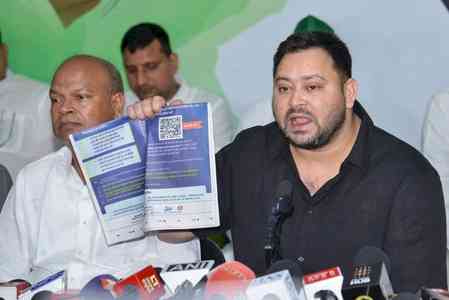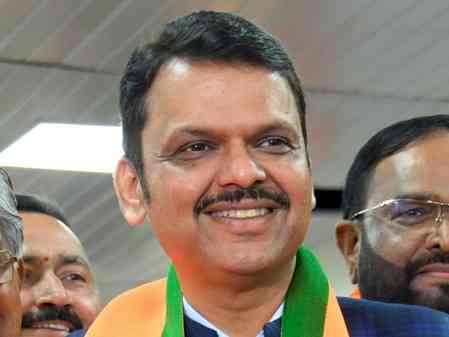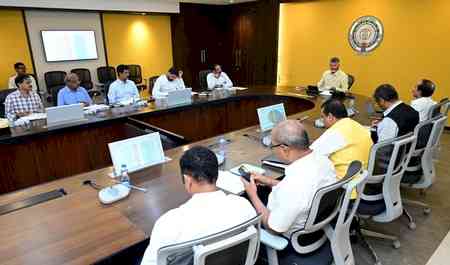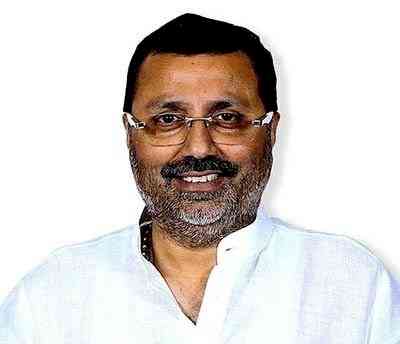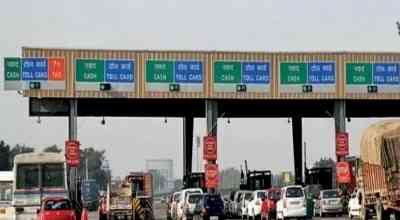On New Criminal Laws AIBA writes to PM, suggests to increase strength of Police Personnel, judicial officers, FSL and having evening courts.
The All India Bar Association (AIBA), a Lawyers body on Friday written a letter to Prime Minister of India in relation to new Criminal Laws and suggested that for effective implementation there is need to increase the strength of Police personnel, Judicial Officers, Public Prosecutors, managers for court management, Forensic Science Laboratories (FSL) and for having evening courts.
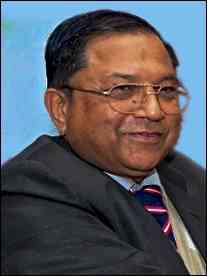
New Delhi, July 12, 2024: The All India Bar Association (AIBA), a Lawyers body on Friday written a letter to Prime Minister of India in relation to new Criminal Laws and suggested that for effective implementation there is need to increase the strength of Police personnel, Judicial Officers, Public Prosecutors, managers for court management, Forensic Science Laboratories (FSL) and for having evening courts.
Dr. Adish Aggarwala, Chairman of All India Bar Association, Outgoing President of Supreme Court Bar Association (SCBA) through letter to Prime Minister Narendra Modi stated that certain pivotal steps which are necessary to ensure that your remarkable vision of ensuring timely completion of trials, swift registration of FIRs, and expedient completion of investigation, through the three new criminal laws, reaches fruition, and effectively so.
Under the new criminal laws, which came in force on July 1, 2024, FIR is to be recorded within three days of complaints submitted through electronic communication, providing impetus to the initial phase of criminal cases. The competent court has to now frame charges within sixty days from first hearing on charge. A novel inclusion in the new criminal laws is the introduction of trial in absentia against proclaimed offenders after ninety days from charge framing, expediting proceedings and ensuring timely delivery of justice to victims and society at-large. The criminal courts have now been mandated to pronounce judgments within forty-five days after a trial stands concluded to ensure swift justice delivery. Further, the said courts have to upload the judgment within seven days from the date of pronouncement, on their respective portals, improving access to justice for all.
These reforms have sparked an undercurrent of hope among the masses that finally the proverbial era of “getting dates one after another, but not justice,” shall cease to exist, said Dr Adish Aggarwala, who has served as Additional Advocate General of Uttar Pradesh, Tamilnadu, Punjab and Haryana.
“Notably, when I had the opportunity to highlight the achievements of the government – spearheaded by you, in ringing in reforms through the three new criminal laws in public debates, the critics of the same were pointing out that provisions for such time bound completion of trials are pre-existing in matters such as matrimonial cases, disputes under Section 138 of the Negotiable Instruments Act, MACT claims etc. which were put in place by the then Congress/UPA regime. These arm-chair critics cited the example of the said Congress/UPA era laws to put-forth the contention that such time-bound processes invariably end up being paper tigers, as their implementation is merely in-principle and not practical”, he stated.
“However, I would like to bring to your notice, a subtlety which eludes these critics. The Congress/UPA era laws for time-bound judicial processes never succeeded as such, because they were implemented de hors the infrastructure that would have sub-served the cause of expedited delivery of justice. When I refer to the necessary infrastructure, I primarily emphasize upon the numerical strength of the judicial officers, courts, forensic experts, and even police personnel. The Congress/UPA era laws were destined for failure, as the said regime lacked the gumption to increase the number of judges or to bring about other ancillary reforms, which in turn deprived the public of the desired result of expediting the disposal of various kinds of cases”, he added.
“Speaking of the current times, the citizenry of our great democracy, have by and large received your reforms positively, and see you as a beacon of hope, who put an end to colonial-era relic by enacting the three new laws. Indeed, no one but a leader of your courage and strength could have ensured smooth passage of the enactment of the new laws at the risk of unsettling the status quo that plagues our snail-paced judicial and police systems”, said Dr Aggarwala, Senior Advocate.
“Everyone in India, even the opposition leaders were happy with the far-sighted changes that you have brought by way of these three new criminal laws. These 3 Bills were then sent to the Parliamentary Standing Committee of Ministry of Home Affairs for consideration and scrutiny, which even comprised Opposition leaders including Digvijay Singh, MP and former Chief Minister of Madhya Pradesh (Congress) Adhir Ranjan Chowdhury Congress) and others from DMK, TMC, BJD etc suggestions thereof were accepted by the government. No bar leader objected to these abovementioned three Bills, given the fact that your government has taken all steps to protect the interest of the citizens of India, the complainants and even accused persons, after giving appropriate opportunity to all the stakeholders to put forward their suggestions regarding these three new criminal Bills. The Parliamentary Standing Committee invited everyone to elucidate their views about these three Bills. Pertinently, many eminent retired judges and bar leaders, appeared before the said Parliamentary Committee which also included Law Commission Chairman, Justice (retd.) Rituraj Awasthi. Thereafter, both the Houses of Parliament (Lok Sabha on December 22, 2023 and Rajya Sabha on December 21, 2023) passed all these three Bills. The President of India provided her assent to these Bills on December 25, 2023.
“Now that you have taken over as the Prime Minister of India, for a historic & record third term, with the support of TDP and JDU, some frustrated elements who never earlier opposed these three criminal laws are suddenly up in arms against the new laws despite the fact that even the sitting Chief Justice of India Dr. Justice D.Y. Chandrachud, who happens to be the third longest serving Chief Justice of India, for an ongoing period of two years – after his father Mr. Justice (retd.) Y.V. Chandrachud (7.5 years), and Mr. Justice (retd.) K.G. Balakrishnan (3.5 years) – has welcomed these Acts by publicly asserting that the new Bharatiya Nagarik Suraksha Sanhita (BNSS) provides a holistic approach to deal with crimes in the digital age.
Chief Justice of India Dr. Justice D.Y. Chandrachud hailed the reforms stating, “I think that the enactment of three new criminal laws by the Parliament is a clear indicator that India is changing. India is on a move, and we do need new legal instruments to deal with the current challenges that we envisage for the future of our society…" He further added, “These laws signify a watershed moment for our society because no law affects the day-to-day conduct of our society like the criminal law. India is set for a significant overhaul of its criminal justice system with the upcoming implementation of three new criminal laws.”
“Senior Advocate Kapil Sibal who succeeded me as the President of the Supreme Court Bar Association has also criticised these three Acts. In fact, in a recent instance, Mr Sibal went as far as saying that these laws are much worse than the repealed colonial laws. Mrs. Indira Jaising criticised these three Acts and said, “It will be a mess.” She further added, “The request to the minister is to issue a simple notification deferring the implementation. Give the newly elected Parliament an opportunity to look at these laws.” Further, Mr. P. Chidambaram opined “non-professional people have drafted the new laws” and that “they were part-time members of a committee”.
Given your proven track record, firstly as the Chief Minister of Gujarat, and now as the Prime Minister of India, I have firm faith that if the provisions of these Acts are properly implemented, and its roots watered with proper infrastructure, everyone irrespective of his or her political affiliation will worship you as the leader who championed the cause of delivering measurable justice to every citizen of the country, and in a time bound manner. Needless to state, just like some of the other reforms that have taken place under your watch such as the Unified Payments Interface (UPI), even these new Acts will be emulated by regimes across the globe, who will seek to borrow the provisions of these new Acts for the better administration of criminal justice system in their countries.
“I, therefore, propose, that the strength of police personnel, judicial officers, public prosecutors, managers for court management, forensic science laboratories and experts must be increased immediately, in order to ensure that your vision behind the reforms in our criminal justice delivery system succeeds. In addition, the government should, in coordination with the various High Courts and state governments, gradually set-up evening courts in each district headquarters”, pleaded Dr Aggarwala, who has been the Acting Chairman and elected Vice-Chairman of Bar Council of India.
“My proposal acquires significance in light of certain data, as available in the public domain, coupled with the aims and objectives of the new criminal laws. One of the burning issues that continually vexes Indian judiciary is the staggering backlog of cases. The current number of judges is inadequate to handle the vast number of cases filed each year. As recent data suggests, Indian judiciary faces a backlog of over 4 crore (40 million) cases across all courts. The judge-population ratio in India is approximately 18 judges per million people, comparatively much lower than the ratio in other developed and developing countries. The problem becomes yet more confounded given the average pendency of cases in lower courts exceeds 5 years, contributing to delays in justice delivery.
Therefore, it can easily be discerned that in the context of already burdened courts, successful implementation of the envisioned timelines in the new laws, as enumerated hereinabove, there is a pressing need for increasing the number of judges and courts, which can expedite trials, reduce backlog, and ensure timely delivery of justice.
Similarly, it is well-known that even the police machinery in India is over-burdened, and inadequate. The new laws mandate certain noble changes such as regular updates to victims/informants about status of investigation within ninety days with the aim of fostering transparency and keeping stakeholders informed. The Bharatiya Nagarik Suraksha Sanhita Act, 2023 (BNSS) now necessitates the maintenance of a register in both the police station and the court to contain the details, such as the address, email address, phone number, etc., of the individual being summoned. Further, a ‘Zero FIR’ can be filed at any police station, irrespective of its jurisdiction and such police station must transfer the Zero FIR to the appropriate jurisdictional police station for investigation. In addition, policemen carry various other responsibilities of informing relatives of the accused in the event of his/her arrest, preparing reports, maintaining case diaries, all of which testify to the fact that their duties are humongous.
However, when the same is assessed on the anvil of the strength of the police force, the need for increasing the number of police personnel becomes evident. India has approximately 151 police personnel per 100,000 people which is lower than the standard of 222 police per 100,000 people recommended by the United Nations. Many states in India report a shortage of police personnel, with some estimates suggesting a deficit of tens of thousands of police officers. Therefore, I reiterate that increasing number of police personnel is necessary for success of the new criminal laws as by and large the criminal law is set-in motion by the police force.
Now, coming to the prosecutors and forensic experts, even their duties and roles have been significantly expanded in the new criminal laws, and rightly so. For instance, the Director of Prosecution is entrusted with providing opinions on filing appeals and overseeing cases that carry sentences of ten years or more, life imprisonment, or death. The Deputy Director of Prosecution is assigned the responsibility of examining police reports and supervising cases punishable by seven years or more but less than ten years, ensuring their prompt resolution.
Furthermore, the BNSS paves the way for another novel provision which provides that where the offence is punishable with imprisonment of seven years or more, the police officer in charge shall cause the forensic experts to visit the crime scene to collect such forensic evidence and video-record the entire process on their mobile phone or other electronic device. It further provides that if a state lacks forensic facilities, it shall notify utilization of such services from another state.
Even in the case of prosecutors and forensic experts the data seems to suggest that there is a substantial workload on public prosecutors, with many handling hundreds of cases simultaneously. The number of public prosecutors is insufficient compared to the volume of cases being filed, leading to overburdened prosecutors and abysmal quality of prosecution. At the same time, India also faces a severe shortage of forensic experts. The ratio of forensic experts to cases needing forensic examination is disproportionate, leading to delays in investigations and trials.
Therefore, viewed from a holistic perspective and taking entire conspectus of facts and data into account, need for evening courts, and higher number of police personnel, judicial officers, public prosecutors, managers for court management, forensic science laboratories, becomes pivotal for the success of the criminal law reforms.
I consider it my duty and good fortune to bring these matters to your kind attention and I trust that you will give them the consideration they deserve”, stated the letter written to Prime Minister.


 Girish Saini
Girish Saini 
